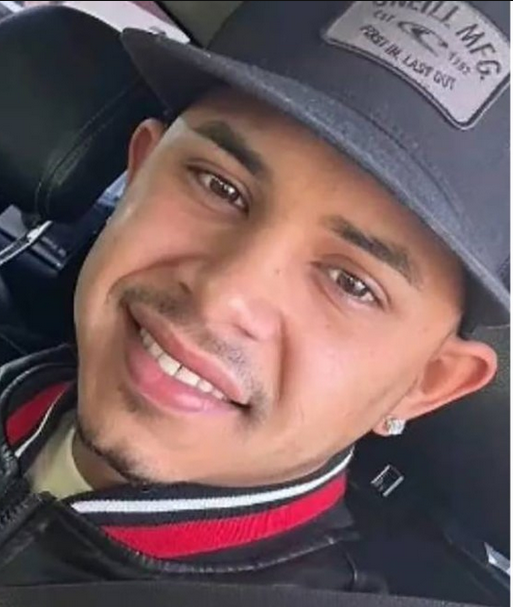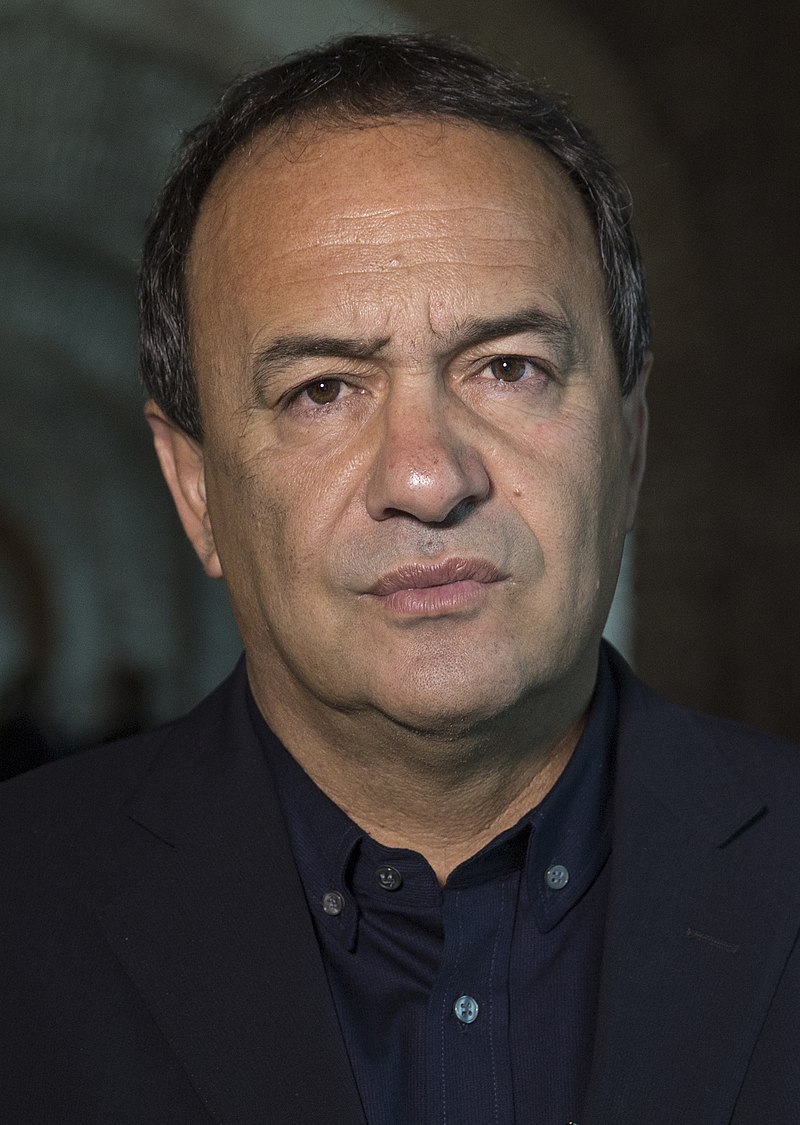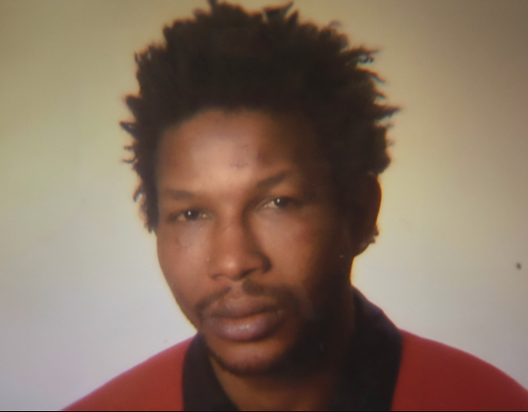March 13, 2025 – parking lot of his apartment in Irving (TX)
27,-year-old. Wrongfully arrested, deported to the Terrorism Confinement Center (CECOT) maximum security in El Salavador, hit with fists and batons : sueing Department of Homeland Security
- Last update: 15:12 - First published
Leon joined the United States in June 2023 on a request with the CBP One app, used by the Joe Biden government to manage migrant appointments on the Mexican border. He had applied for legal status under the Temporary Protection Status program, and his application was still in the process when he was arrested. Since then, the Trump administration has ended the program for hundreds of thousands of Venezuelans, and its government has repurposed the CBP One app to allow a process of self-deportation.
ICE agents took Leon into custody on March 13 in the parking lot of his apartment in Irving, Texas, wrongly claiming his tattoos reflected an affiliation with Tren de Aragua, according to his claim. He had entered the U.S. in 2023. He worked as a barber and was scheduled to appear before an immigration judge in 2028.
Homeland Security said in an email that Leon was a “confirmed associate” of the Tren de Aragua gang — though it did not specify how it reached that conclusion — who had entered the country illegally. It called his claims a fake “sob story.”
“President Trump and Secretary Noem will not allow foreign terrorist enemies to operate in our country and endanger Americans,” the email said. It added, “We hear far too much about gang members and criminals’ false sob stories and not enough about their victims.”
A federal judge ruled in June that the Trump administration must give some of the migrants sent to the prison in El Salvador a chance to challenge their deportations. U.S. District Court Judge James Boasberg said the people hadn’t been able to formally contest the removals or allegations that they were members of Tren de Aragua. He ordered the administration to work toward giving them a way to file those challenges. The judge wrote that “significant evidence” had surfaced indicating that many of the migrants were not connected to the gang “and thus were languishing in a foreign prison on flimsy, even frivolous, accusations.”
At El Salvador’s Terrorism Confinement Center, or CECOT, Leon said guards hit him with fists and batons and, on one occasion, viciously beat him after taking him to an area of the prison without cameras. Leon spent four months at the Terrorism Confinement Center, or Cecot, where he said he was beaten and abused.
When Leon was sent to El Salvador, his family failed to locate him for more than a month, his brother David said in an interview from his Chicago home. Leon‘s foreign identification number disappeared from the website used to track detainees in the U.S. immigration system. Neither his brother nor Leos girlfriend could get answers from federal immigration agencies about his whereabouts.
Finally, his family learned that he was being held in the CECOT of El Salvador. According to his complaint, the guards routinely assaulted detainees in an area without cameras so as not to leave digital evidence of the abuses. In the document, Leon said officers used fists and batons to beat him in the chest and stomach, and forced him to see how they brutally abused other prisoners.
His complaint describes the terrible conditions at CECOT. He says he was being held with nearly 20 other Venezuelan detainees in a cell about 9.2 meters per side, which was only cleaned once a week. Men were rarely allowed to go abroad, had no access to medication and were not allowed to exercise or talk to their relatives or lawyers, the complaint said.
When Leon complained about his gastritis, he said he was only given water. To pass the time, the inmates made dice with soap and tortillas and used toilet paper to play the Park, a board game.
“Anything could lead to beatings, If we played, they beat us up. If we talked, they beat us, if we laughed, they beat us up. If we took a bath, they beat us.
To every migrant who is still in the United States, be whoever you are or from any country that comes, I want you to achieve your goals, focus on working for your family, and that overnight you don’t take everything away from you.“
He recalled that he only had contact with someone from abroad once during his stay, with the Red Cross, who visited him for 30 minutes on June 12.
Leon has now met with his daughter, Isabela. In the interview, he said he had no plans to return to the United States, but that he would go ahead with his legal process in the hope of preventing other migrants from suffering the same treatment he received.
On July 24, Leon filed an administrative complaint with the Department of Homeland Security, accusing U.S. immigration agencies of expelling him without due process. It is the first such complaint filed by one of 252 Venezuelans who were expelled and sent to El Salvador in March, their lawyers said, and it is a necessary step before taking legal action against the U.S. government in federal court. He claims $1.3 million in damages, was released last week as part of a large-scale prisoner swap between Venezuela and the United States. He now lives in Venezuela.
“I want to clear my name,” Leon said in a telephone interview Wednesday night from his home in Miranda State. “I’m not a bad person“.
Leon filed his complaint with the help of the League of United Latin American Citizens, a civil rights group. Its executive director, Juan Proaño, says he plans to file dozens of other complaints on behalf of men who were sent to El Salvador prison. His lawyers say he has no criminal record in the United States, except for an offence committed in November 2024. In that incident, Leon was arrested after police stopped a car he was travelling in and found drug-related paraphernalia. Leon claimed that the material did not belong to him and that he did not even know about his presence. He pleaded guilty and was fined.
Physical violence
| X | Arrest |
| X | Detention / Custody |
| Hustle / Projection | |
| Prone position / lying flat on the stomach / ventral decubitus | |
| “Folding” (holding a person in a seated position with their head resting on their knees) | |
| Painful armlock | |
| X | Kicks, punches, slaps |
| Feet / knees on the nape of the neck, chest or face | |
| Blows to the victim while under control and/or on the ground | |
| Blows to the ears | |
| Strangulation / chokehold | |
| Fingers forced backwards | |
| Spraying with water | |
| Dog bites | |
| Hair pulling | |
| Painful tightening of colson ties or handcuffs | |
| Painfully pulling by colson ties or handcuffs | |
| Sexual abuse | |
| Striking with a police vehicle | |
| Electric shocks | |
| Use of gloves | |
| Use of firearm | |
| Use of “Bean bags” (a coton sack containing tiny lead bullets) | |
| Use of FlashBall weapon | |
| Use of sound grenade | |
| Use of dispersal grenade | |
| Use of teargas grenade | |
| Use of rubber bullets weapon (LBD40 type) | |
| X | Use of batons |
| Use of Pepper Spray | |
| Use of Taser gun | |
| Use of tranquillisers | |
| Execution | |
| X | Deportation |
| Kidnapping | |
| Disappearance |
Psychological violence
| Charge of disturbing public order | |
| Charge of rebellion | |
| Accusation of beatings to officer | |
| Charge of threatening officer | |
| Charge of insulting an officer | |
| Charge of disrespect | |
| Charge of resisting arrest | |
| Aggressive behaviour, disrespect, insults | |
| X | Intimidation, blackmail, threats |
| Vexing or intimidating identity check | |
| Mock execution | |
| Intimidation or arrest of witnesses | |
| Prevented from taking photographs or from filming the scene | |
| Calls to end torment remained unheeded | |
| Prolonged uncomfortable position | |
| Failure to assist a person in danger | |
| Photographs, fingerprints, DNA | |
| Threat with a weapon | |
| Shooting in the back | |
| Charging without warning | |
| Kettling (corraling protestors to isolate them from the rest of the demonstration) | |
| Car chase | |
| Sexist remarks | |
| Homophobic remarks | |
| Racist comments | |
| Intervention in a private place | |
| Mental health issues | |
| Harassment | |
| Body search | |
| Home search | |
| Violence by fellow police officers | |
| Passivity of police colleagues | |
| Lack or refusal of the police officer to identify him or herself | |
| Refusal to notify someone or to telephone | |
| Refusal to administer a breathalyzer | |
| Refusal to fasten the seatbelt during transport | |
| Refusal to file a complaint | |
| X | Refusal to allow medical care or medication |
| Lies, cover-ups, disappearance of evidence | |
| Undress before witnesses of the opposite sex | |
| Bend down naked in front of witnesses | |
| Lack of surveillance or monitoring during detention | |
| Lack of signature in the Personal Effects Register during detention | |
| X | Deprivation during detention (water, food) |
| X | Inappropriate sanitary conditions during detention (temperature, hygiene, light) |
| Sleep deprivation | |
| Confiscation, deterioration, destruction of personal effects | |
| Pressure to sign documents | |
| Absence of a report | |
| Complacency of doctors |
- 18.07.2025 – Released in deal that frees migrants deported to El Salvador by US
- 00.00.2025 – Deported to CECOT in El Salvador
- 13.03.2025 – Arrest and placement in custody of Leon
- Lawyer : Democracy Defenders Fund
- Collective :
- Donations :



